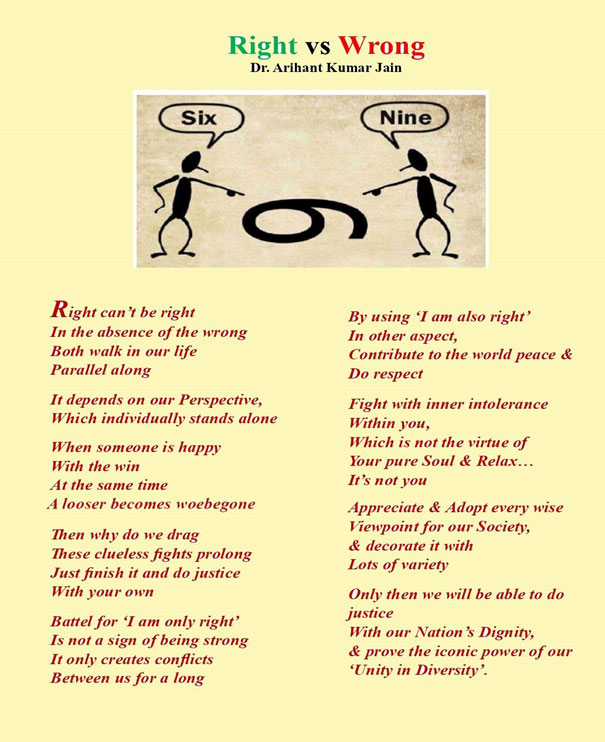Relevance of Anekāntvāda in a Multidimensional World
Jai Jinendra and welcome you all to the special issue of ‘Jain Avenue’, where we explore the profound relevance of Anekāntvāda and its applications in our contemporary world. Anekāntvāda, translated as “the doctrine of non-absolutism” or “many-sidedness,” advocates for the acceptance of multiple truths and viewpoints. Applying Anekāntvāda to contemporary issues can help foster understanding, empathy, and cooperation in addressing complex challenges.
In today’s fast-paced, multidimensional, and interconnected world, which is often becoming polarized by conflicting ideologies and rigid viewpoints, Anekāntvāda serves as a guiding light amidst the complexities and uncertainties we face, which provides us with a multidimensional vision and is a step towards establishing world peace. Rooted in the Jain philosophical tradition, Anekāntvāda teaches us the invaluable lesson of non-absolutism, reminding us that truth is multifaceted and context-dependent. It urges us to transcend the limitations of binary thinking and embrace the diversity of viewpoints that exist.
If we think deeply, democracy is also influenced by the Anekānt principle to some extent. The backbone of democracy is Anekānt Perspective, so when we talk about democracy being in danger, it means democracy is moving towards Ekantavada (one-sidedness). Anekāntvāda encourages us to seek common ground and engage in constructive dialogue. By acknowledging the validity of diverse political perspectives, we can bridge divides and work towards solutions that serve the collective welfare.
Similarly, in matters of environmental conservation, Anekāntvāda reminds us of the interconnectedness of all life forms and the importance of holistic stewardship. By adopting a nuanced approach that considers ecological, social, and economic factors, we can strive towards sustainability and harmony with the natural world.
Issues of social justice also benefit from the application of Anekāntvāda, as it prompts us to recognize the complexity of intersecting identities and historical contexts. Anekāntvāda encourages us to tread with mindfulness and responsibility. By amplifying marginalized voices and embracing inclusivity, we can work towards a more equitable and compassionate society.
In this special issue of Jain Avenue, we delve into the application of Anekāntvāda across various facets of life, in which Anekāntvāda can enrich our understanding and guide our actions in an ever-changing world. By applying the principles of Anekantvad to contemporary issues, we can cultivate a culture of dialogue, understanding, and cooperation, ultimately paving the way for a more harmonious and inclusive society.
So now, Let’s delve into through insightful articles, how this ancient principle of Anekāntvāda’can illuminate and guide us in navigating the intricacies of modern-day dilemmas. We aim to ignite dialogue and foster a deeper appreciation for the principles of non-absolutism. Together, let us strive to navigate the complexities of our world with wisdom and compassion, guided by the timeless teachings of Jain philosophy.
In conclusion I want to present this topic through a poem, the title is ‘Right vs Wrong’, which will emphasize more on the relevance and significance.


